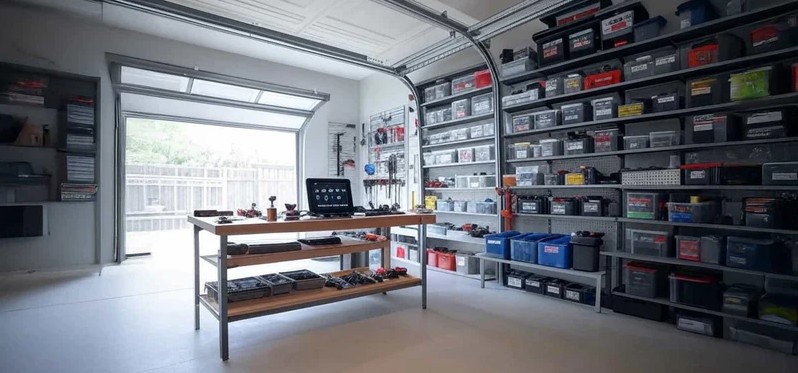Real Estate in India is Evolving—Are You Keeping Up?
The Indian Real Estate market in 2025 is witnessing a rapid transformation. With changing consumer preferences, digital disruption, policy reforms, and a growing appetite for sustainable living, it’s clear that the sector is no longer what it used to be even a few years ago.
Whether you’re a homebuyer, investor, or industry professional, staying updated with emerging real estate trends in India is crucial to making smarter decisions. In this blog, we explore the top Real Estate trends to watch in 2025 and how they’re reshaping the way India buys, sells, and invests in property.
Rise of Tier 2 and Tier 3 Cities as Real Estate Hotspots
Cities like Indore, Surat, Kochi, Lucknow, and Jaipur are emerging as promising destinations for real estate investment. With improved infrastructure, increasing job opportunities, and better quality of life, these cities are attracting both developers and buyers.
Pro Tip: Investors are capitalizing on lower entry costs and higher appreciation potential in these growing markets.
Digital Transformation and PropTech Integration
PropTech (Property Technology) is no longer a buzzword—it’s a necessity. From virtual property tours, digital bookings, online documentation, to AI-powered property recommendations, the digital shift has improved transparency and convenience for homebuyers.
Trend Alert: Buyers in 2025 expect a fully digital home buying journey—from discovery to delivery.
Sustainable and Green Buildings Are in Demand
With growing environmental awareness and stricter regulations, builders are focusing on eco-friendly Real Estate Projects. Certifications like IGBC (Indian Green Building Council) and LEED are gaining prominence.
Popular features: solar panels, rainwater harvesting, green roofs, and energy-efficient designs.
Why it matters: Homebuyers are increasingly prioritizing sustainability over luxury, especially in metro cities.
Affordable Housing Continues to Lead Demand
Under the PMAY (Pradhan Mantri Awas Yojana) and rising demand from first-time homebuyers, affordable housing remains one of the most resilient segments. Builders are launching 1 bhk and 2 bhk configurations with value-driven amenities to cater to this large audience.
Investment Tip: Projects in areas like Navi Mumbai, Kalyan, Panvel, and Boisar are expected to grow steadily.
Co-Living and Rental Housing Gaining Ground
Driven by millennials, working professionals, and students, co-living spaces and rental housing are rapidly expanding across urban India. These spaces offer flexible leases, modern interiors, and a sense of community.
Fun Fact: India’s rental housing market is expected to grow by 30% by 2026, especially in tech cities.
Luxury Real Estate is Back in Demand
After a pandemic lull, the luxury housing segment in India is seeing a major resurgence. Buyers are now prioritizing larger homes, private amenities, home offices, and premium locations.
Top cities: South Mumbai, Gurgaon, Bangalore, and Pune are witnessing renewed traction in the high-end segment.
Smart Homes with Integrated Technology
From voice-controlled lighting to smart security systems and IoT-enabled appliances, buyers are now expecting smart features as standard.
Keywords: smart homes India 2025, IoT in real estate, home automation trends in India
Market Insight: Builders are integrating these features to stand out and appeal to tech-savvy buyers.
Work-from-Home Culture Redefines Real Estate Needs
Hybrid and remote work models have changed what buyers look for. Homebuyers are now seeking:
- Extra rooms for home offices
- Better ventilation and balconies
- Projects with coworking zones and high-speed internet
Changing Priorities: Location is still key, but space and functionality now matter just as much.
Real Estate as a Hedge Against Inflation
As traditional investments fluctuate, real estate continues to be a preferred asset class for wealth preservation and capital growth. With rising rental yields and steady appreciation, 2025 is seeing more investors turn to property for long-term security.
RERA Compliance and Transparency Still Driving Trust
The Real Estate (Regulation and Development) Act (RERA) continues to ensure accountability, delivery, and transparency in the sector. Buyers in 2025 are far more informed and only trust RERA-approved projects.
Conclusion: Adapt to Trends or Miss the Opportunity
From sustainability and digitalization to changing buyer behavior, the Indian real estate sector in 2025 is fast evolving. Whether you’re a buyer or an investor, keeping an eye on these trends can help you make strategic, future-ready decisions.
As cities expand and technology advances, the real estate landscape will continue to offer opportunities for those who stay informed and act smart.







